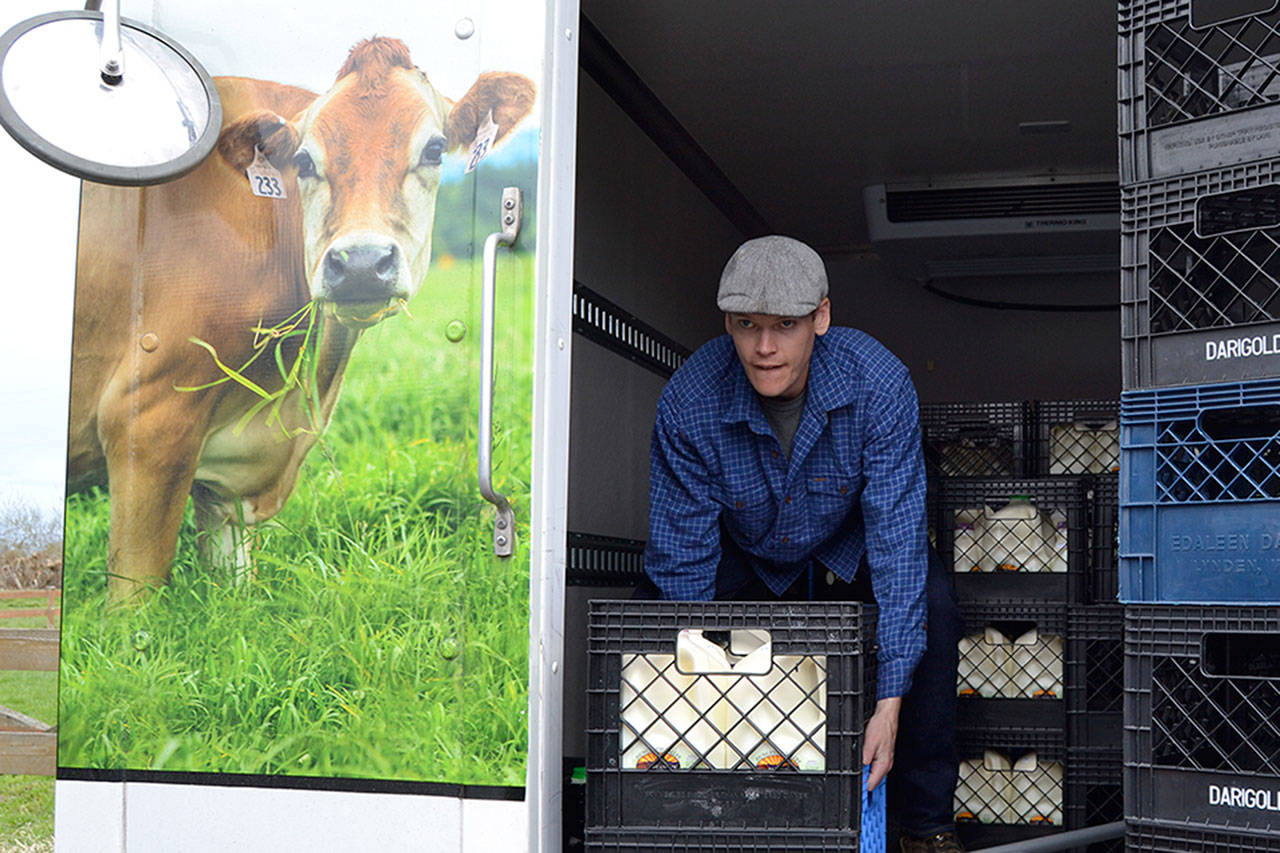For a week now, raw milk from Dungeness Valley Creamery has been off store shelves following monthly routine state test sampling that found E. coli STEC in one sample of milk product.
Staff with the Washington State Department of Agriculture report the E. coli was found in retail raw whole milk dated with an April 6 expiration.
Ryan McCarthey, Creamery co-owner, said he and staff voluntarily recalled whole milk, skim milk and cream dated with an expiration between April 6-20. He said they learned of the E. coli sample on April 8 and began pulling product the next morning.
“We originally hoped to be back in stores by Saturday (April 13) or Tuesday at the latest,” he said.
McCarthey said he’s been making repeated calls to the WSDA with hope for an “all clear” update with their latest sample.
Since the test, McCarthey said they’ve dumped more than a thousand gallons of unused milk but continue to store new milk everyday.
“We have product available immediately,” he said. “We have at least 600 gallons ready to go at any time.”
Some Creamery staffers have been helping with cleaning and doing odd jobs during the recall, McCarthey said, and he plans to sell some non-milk producing heifers, and butcher a few cows to help make up for some of the lost revenues.
McCarthey said it’s unclear how long the testing could take before milk sales can start again.
“So far the answer we have been given involves the testing methods and incubation periods to give this type of bacteria an opportunity to grow can take time,” Ryan and Sarah McCarthey wrote on Facebook.
Despite the April 6 expiration batch not coming into contact with later productions, the McCartheys wrote its industry standard to “recall subsequent batches of product until the point we were notified. We then conduct remediation cleaning and examine potential sources of contamination.”
Quarterly inspections were moved up for the farm to April 8 by the state, and the Creamery’s barn came back positive with a 100 percent for the bottling plant and 99 percent for the barn with a point taken off for some wear in concrete outside the barn, McCarthey said.
Testing
WSDA reported that no illnesses have been found related to the recalled product.
State officials say E. coli infections can cause severe diarrhea, stomach cramps and/or bloody stools, and that symptoms generally appear three-four days after exposure and up to nine days to appear.
In some cases, infection causes hemolytic uremic syndrome where red blood cells are destroyed resulting in kidney failure. Those with these symptoms should contact a health care provider, state officials said.
Due to state regulations, the Creamery must put warnings on each product that it’s not pasteurized and may contain harmful bacteria. Health officials also caution caution infants, younger children, senior citizens, pregnant women and people with weakened immune systems from consuming raw milk.
Last September, Department of Health officials claimed product infected with E. coli from the Creamery made a 2-year-old child and a 72-year-old female ill last August.
Test samples were soon thereafter found with no traces of E. coli though and both customers recovered, health officials said.
The Creamery was allowed to operate and sell product despite the state’s warning last year.
McCarthey said they’ve used both instances to revisit cleaning protocols. This is the first recall of product since 2013 when E. coli was found in cream and recalled before it was eaten.
McCarthey said this led to a new process for how they do cream.
In 2014, they stopped sales after a sample was found “inconclusive” for E. coli but three days later sales began again after health officials found no traces of E. coli in the product.
Community support
With the recall in place, the Creamery’s raw milk is not available in 50 retail stores across Western Washington, including Nash’s Farm Store, Sunny Farms Country Store, Agnew Grocery and the Creamery’s store in the Sequim area.
McCarthey said one supplier with two stores in Bellingham opted not to sell their product anymore after the recall, but Creamery staff plan to establish another drop-off place and alternatives for customers.
Customers have come out in droves though, McCarthey said, by sending emails and calls of encouragement, and purchasing any product they can like eggs, ice cream and butter.
“We find a lot of customers come out to support us after something like this and new ones find out about us after something like this, too,” he said.
One supporter, Patti Bostwick, created a GoFundMe online fundraiser for the Creamery, too, at www.gofundme.com/life-on-a-raw-milk-dairy. It’s raised close to $4,000 in four days. McCarthey said they considered whether to accept or not, but opted to “pay it forward” by “using these donated funds in ways that can aid us to make up some of the lost sales in the future while still providing a service or benefit to the community we’re a part of.”
He said funds tentatively will support wholesale delivery pricing at the same price retail stores pay to local food banks, and depending on the length of recall, ensure staffing remains fully employed.
“We can hardly express the depth of our gratitude for all the support we have received,” the McCartheys wrote.
For more information and updates on the Dungeness Valley Creamery, 1915 Towne Road, call 360-683-0716 or visit www.facebook.com/dungenessvalley creamery.



